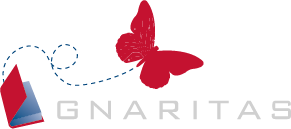Gnaritas recently completed a client engagement that drew on our expertise in a number of areas and went beyond a typical e-learning/performance support project. We developed a system that supports not only user performance at different levels, but also enables significant research data analysis and customized reporting. And as with every project, we learnt a lot ourselves – proof of our ‘learn by doing’ philosophy.
The project – to develop a performance support system for Boston College’s School of Education “City Connects” program – depended on a deep understanding of the different needs of the various stakeholders: the users of the system (coordinators based in schools who are responsible for the day-to-day implementation of the program, reviewing the needs of students in order to refer a wide variety of individually tailored supportive services); the managers of those users at an area level; and the administrative and research teams at BC who use the data to measure the impact of the program and to plan for future growth.
Our approach was to base the system design on a thorough, structured initial analysis of the job performance and user needs at all levels. Interviews at schools were eye-opening and allowed us to map in detail the workflows of the coordinators, who are the front line of the program. Matching the day-to-day work of the coordinators to the complex data capture requirements of the research team was key, so that the system would seamlessly support both sides. The interface, design and database structure all built on what we learned about the actual job tasks, so that the complex processes, forms and reporting etc. that are involved in implementing the program, became easier to complete. In addition, online task management support was provided to help track, highlight and measure the progress in key areas, shown at a glance.
The initial performance and knowledge needs analysis was the basis for the information architecture design, and was further enhanced as we learnt more about the complexities of the requirements as we developed and tested the system.
The system is now in use in all “City Connects” elementary schools, supporting the program’s work of providing enrichment, prevention and intervention services to children to help them learn and thrive.
